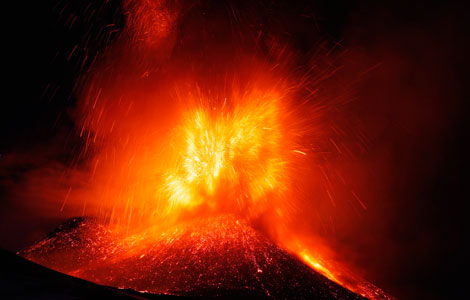

Undercurrents and turmoil in recent years
After Chirac resigned from the presidency in 2007, President Nicolas Sarkozy, on behalf of the new right-wing political forces, entered the Elysee Palace. During his first visit to China in November that year, Sarkozy showed his willingness to strive for greater development of bilateral relations within the framework of strategic partnership.
However, a series of events had put things into the opposite way. Since 2008. A Tibetan separatist was attempting to disrupt the Beijing Olympic torch relay in Paris in 2008 and later Sarkozy asked the Chinese government to have talks with the Dalai Lama as a condition for him to attend the Beijing Olympic opening ceremony.
More seriously, Sarkozy announced on the eve of the China-EU Summit that he was going to meet the Dalai Lama in Poland. Such politicization of sport and interference in China's internal affairs damaged China's core interests and was unacceptable to the Chinese government. Thus, the Chinese side made the decision to postpone the China-EU summit. Premier Wen Jiabao's "Tour de France Tour" in early 2009 also showed the dissatisfaction with the French government.
These seemingly unexpected fluctuations in Sino-French relations actually stemmed from the misjudgment of the international situations by French leaders.
First, since 2008, the international situation has been constantly changing. The strategic partnership between China and France was not weakened but became more prominent after the financial crisis swept the world. The harm France did at this crucial moment was only a loss to both sides.
Second, the mode of high welfare society was hit hard in the context of globalization. Amid the economic downturn, high unemployment rate and increasingly prominent social problems, some French politicians began to shift the blame to the emerging countries, especially China. They mistakenly believed that as long as they discredited China, playing the card of human rights and ideology, they could divert public attention to ease domestic pressure.
Third, France found it difficult to adjust to China's fast development, thus hoping to use a variety of issues to contain and obstruct China's development.
Heal the wound and look forward
Since 2008, China-France relations have experienced continuous bouts both at the diplomatic and civil levels.
The French government finally recognized that a Sino-French strategic partnership is in the fundamental interests of both sides. In regard to this, the French government since early 2009 sent high-level delegations to China led by former President Jacques Chirac and former Prime Minister Jean-Pierre Raffarin to convey French willingness to bridge relations.
After several rounds of negotiations, a new communiqué was reached. In the communiqué, the French government said that it understands the importance and sensitivity of the Tibetan issue and reiterated its adherence to one China. At the same time, President Hu Jintao had a conversation with Sarkozy at the London G20 summit. Bilateral relations began to improve.
In general, the outlook of China-French relations is quite positive.
In politics, the two sides have no fundamental conflict of interest and have no legacy problems. There are only independent diplomatic traditions and common strategic needs.
In economics, complementary and mutually beneficial cooperation between the two countries leads to expanding bilateral trade volume. The trade volume in 1964 was $100 million, while now it is more than that in a single day.
In the field of culture, protecting cultural diversity and building a harmonious world is a joint proposition.







